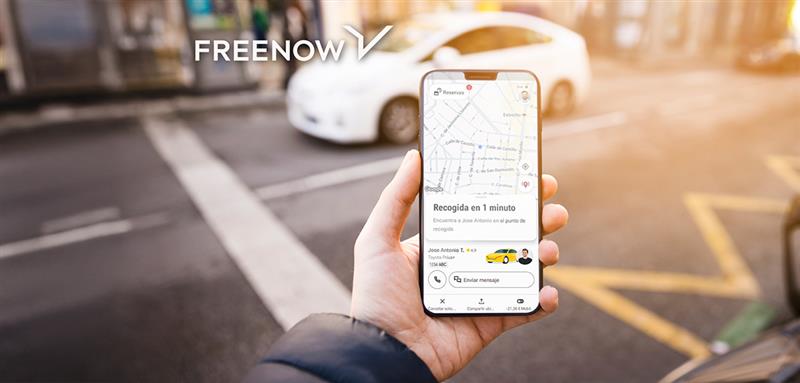Besides invalidation of the patent, the lack of a legal basis in patent infringement and invalidity claims can also result in an order to pay costs due to recklessness. The judgments in the FREENOW case reaffirm the need for an exhaustive and well-reasoned analysis in intellectual property lawsuits and serve as a reminder that abuse of the system can carry major consequences.
Patent infringement and invalidity proceedings in Spain are highly complex and demanding. In addition to a deep knowledge of the applicable legislation, judges and lawyers also need to gain an in-depth understanding of the technology involved. For this reason, in practically all proceedings it is crucial to use technical expert reports providing the necessary scientific and technological input.
Despite the high level of technical and legal knowledge required in these proceedings, we sometimes see infringement claims lacking the minimum necessary rigor. This circumstance is even more serious where the patents concerned were granted under the former Patents Law 11/1986 which allowed patents to be granted without examining the patentability requirements in depth. In these cases, however, respondents still have an obligation to put forward a solid and technically well-reasoned defense, which can carry a considerable cost in human resources and materials. It is particularly critical where the patent covers technology that is essential for continuity of the business.
In this landscape, a recap is useful of the remedies in our judicial system for avoiding abuses in patent litigation and which ensure a balance between a lawful defense of intellectual property rights and legal certainty for businesses.
FREENOW case
Recently, MYTAXI IBERIA, S.L. (mytaxi), an intermediation services provider in the mobility sector, had to defend its FREENOW (formerly mytaxi) app against a patent infringement claim. As we shall see, the proceeding ended with invalidation of the patent and an order for costs due to recklessness on the part of the co-claimants.
In 2021, the owner and licensee of a patent protecting a method and system for connecting passengers and taxi drivers without intermediaries filed a claim against mytaxi for allegedly infringing its intellectual property rights. This patent was granted without prior examination, under Patents Law 11/1986, despite both the Spanish Patents and Trademarks Office (OEPM) and the European Patent Office (EPO) having noted its lack of inventive step. In their claim, the co-claimants requested damages from mytaxi for an alleged infringement and asked for the app to be withdrawn from the Spanish market.
In its answer, mytaxi accompanied its denial of the infringement with a counterclaim challenging the validity of the patent. To do this it filed two expert reports that supported both the nonexistence of an infringement and the grounds for invalidity, specifying a lack of novelty and inventive step.
During the conclusions phase, the co-claimants discontinued their infringement action, pleading it was warranted by the evidence taken, although they attempted to retain the validity of the patent. Ultimately, the judgment at first instance fully upheld the invalidity claim brought by mytaxi, held that the patent was invalid and ordered the co-claimants to pay the costs of the proceedings.
The order to pay costs included a declaration of particular recklessness in bringing the infringement action, based on three circumstances:
- The claim was based on the application for the patent instead of the certificate ultimately granted, which made the co-claimants’ strategy invalid from the start.
- The infringed patent claims were not specified nor was any clear method produced to support the infringement.
- The claimant already knew about mytaxi’s arguments on the non-existence of an infringement right from the prior hearing but still decided to continue with its action.
Disagreeing with the judgment, the co-claimants appealed to Barcelona Appellate Court, challenging both the invalidation of the patent and the order to pay costs due to recklessness. Far from setting aside the lower court’s decision, however, the appellate court confirmed the invalidation and expressly recognized the appellant’s recklessness, highlighting that “the lack of legal rigor in the reasoning in the claim on the alleged infringement of its patent is simply astounding”.
The appellate court reaffirmed the order for costs due to recklessness and added new arguments:
- The infringement report examines the application instead of the granted patent claims and shows an inaccurate number of claims.
- Neither the claim nor the infringement report make a technical analysis, by not adequately comparing the claims with the FREENOW app.
- They deliberately ignore the reports by the Spanish Patents and Trademarks Office and the European Patent Office, which held that the claims are invalid due to the lack of inventive step.
Conclusion
The FREENOW case highlights the need for technical and legal rigor in patent proceedings. Beyond the invalidation of the patent, the judgment is important because of the order to pay costs due to recklessness, an uncommon measure in civil law cases that is even less frequent in relation to patents. The case law requires “conduct characterized by bad faith, […] that does not comply with the ethical imperatives required by social and legal consciousness at a given point in history. In short, it entails a frontal attack on ethical values of honesty and loyalty”.
This ruling reinforces the importance of acting with prudence in patent litigation. The courts’ message is clear: bringing action with no technical or legal basis can have more serious consequences than an order to pay costs in a proceeding on an unspecified claim.
Mario López






